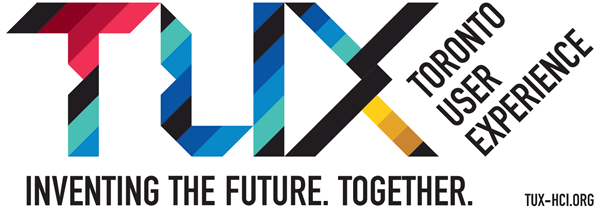Tux Member Presentation
Speaker
Jim Slotta: Knowledge Construction in the Instrumented Classroom: Supporting Student Investigations of Their Physical Learning Environment
2015-12-08 12:30 at U of T; Bahen Centre for Information Technology, room 5166

There is a long tradition among educators to situate learning within a physical orientation in the classroom, through the use of stations (e.g., in elementary classrooms), value lines (i.e., where students are asked to stand in a location that corresponds to their opinion or other value), or even small groups working on specific themes at different table locations. These longstanding examples have served as a persistent reminder that the physical space of the classroom can be used in pedagogically meaningful ways.
A new genre of networked technologies is emerging that can track location and identity, or capture a variety of sensor information. These have opened the doors to new ways of leveraging the physical environment for purposes of learning, creating a new set of interactions with which learners can engage. This talk will present a set of coherent projects that have pushed the boundaries of such applications, instrumenting students and their physical environment to provide students with a learning experience tailored to their location or pedagogical context. These studies are part of the EPIC (Embedded Phenomena for Inquiry Communities) project, a collaboration between Professor Jim Slotta’s research group at the University of Toronto and Professor Tom Moher’s team at the University of Illinois at Chicago. The emphasis of our work is on science inquiry, with a particular interest in collective forms of progress, where students work autonomously within a larger “whole class” context, aggregating their observations or evidence to advance the understanding or progress within the overall community.
James Slotta
James D. Slotta is an Associate Professor of Education at The University of Toronto, where he holds the Canada Research Chair in Education and Technology. Since 2005, he has directed the ENCORE lab – a team of students, designers and developers who investigate new models of collaborative and collective inquiry in K-12 science. His research studies are situated in smart classrooms and distributed learning environments, featuring user-contributed content, aggregated and emergent forms of knowledge, and a variety of scaffolds for the orchestration of individual, small group, and whole class activities. Current research is concerned with collective epistemology, immersive simulations, knowledge building, learning across contexts, and tangible and embodied forms of learning. He maintains international collaborations with scholars from Norway, the United States, Germany and China. Recently, he has begun a program of research in the design and development of a tablet-based scaffolding environment for community health workers in South Africa.
